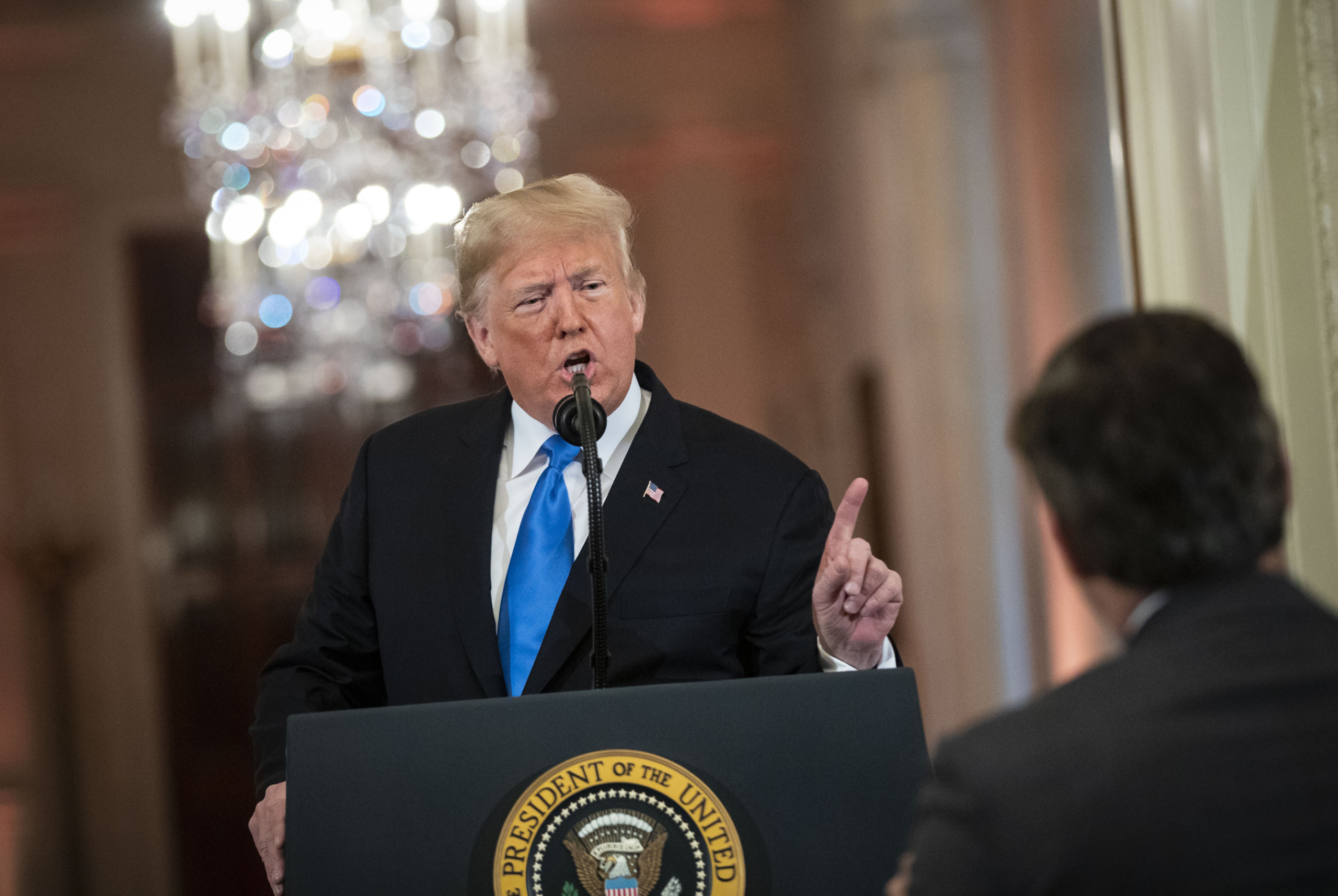Sign up for The Media Today, CJR’s daily newsletter.
This morning, CNN filed a lawsuit against the White House for its revocation of reporter Jim Acosta’s press credentials, following a spat between Acosta and the president at a White House press conference last week. While the feud between Acosta and Donald Trump has been long-running, the suit aims at much wider implications—essentially seeking to ensure that Trump won’t be free to limit press access next time he fights with a reporter.
Jameel Jaffer, executive director of the Knight First Amendment Institute at Columbia University, said the lawsuit was justified. “The First Amendment bars the White House from revoking a reporter’s access to open press briefings simply because it doesn’t like his questions,” he said in a statement. “It would be terrible for the public, and for our democracy, if reporters questioning the president had to operate under an ever-present threat of this kind of retaliation.”
ICYMI: “I’ve been an editor a long time and I have never seen anything like this, period”
As writer Masha Gessen, who has written extensively on authoritarian regimes, put it at a recent event at the Columbia Journalism School, “When a political leader puts journalists in a position of choosing between loyalty and access, he always wins, and journalists always lose. We can talk about how to minimize the loss, but it is certainly a net loss.”
Jonathan Peters, who writes on media law and the First Amendment for CJR, breaks down the complaint:
- The first cause of action is a violation of the First Amendment. The argument is that Acosta’s and CNN’s access to the White House, their coverage of the press conference, and Acosta’s questions to Trump during that press conference were all protected First Amendment activities. Revoking Acosta’s pass, the complaint alleges, deprived Acosta and CNN of their right to access the White House grounds and prevented Acosta from effectively serving as White House correspondent.The complaint also says it was “not accurate” for the White House to claim that Acosta’s pass was revoked because he “plac[ed] his hands” on an intern. The complaint calls such justifications “hollow and hardly sufficiently compelling,” an assertion that seemed to be backed up by video of the incident, despite an attempt by the White House to manipulate it. Thus, the complaint alleges, “the only reasonable inference from Defendants’ conduct is that they have revoked Acosta’s credentials as a form of content- and viewpoint-based discrimination and in retaliation for Plaintiffs’ exercise of protected First Amendment activity.”
- The second cause of action is a violation of the Fifth Amendment right to due process. The complaint alleges that CNN and Acosta have “liberty and property interests in Acosta’s press credentials and the access it affords to the White House.” The crux of the issue is that Acosta “received no direct notice from the White House that his credentials had been revoked, let alone any notice prior to the revocation.” The complaint also says that CNN and Acosta did not receive an opportunity to be heard before revocation of the credentials, and have not been provided any opportunity to appeal or challenge the revocation.
- The third cause of action is a violation of the Administrative Procedure Act against all defendants other than Trump. The basic idea is that the revocation constituted a final agency decision by the Secret Service, which had no good reason to revoke the credentials—meaning that the defendants acted arbitrarily and capriciously, which is a violation of the APA.
The complaint cites two totems of First Amendment law to help make its case. It quotes New York Times v. Sullivan (1964) for the principle that the First Amendment embraces a “profound national commitment to the principle that debate on public issues should be uninhibited, robust, and wide-open, and that it may well include vehement, caustic, and sometimes unpleasantly sharp attacks on government and public officials.”
And the complaint quotes Sherrill v. Knight (1977) for the principles that (1) “the protection afforded newsgathering under the first amendment guarantee of freedom of the press requires that. . . access [to White House press facilities] not be denied arbitrarily or for less than compelling reasons,” and (2) “notice. . . of the factual bases for denial [of access to White House press facilities] with an opportunity to rebut is a minimum prerequisite for ensuring that the denial is. . . [not] based on arbitrary or less than compelling reasons.”
CNN is seeking immediate restoration of Acosta’s credentials or at least the opportunity to have the matter heard by a neutral arbiter; a declaration that the revocation violated the First and Fifth Amendments as well as the Administrative Procedure Act; and reimbursement of CNN’s legal costs.
Has America ever needed a media defender more than now? Help us by joining CJR today.



